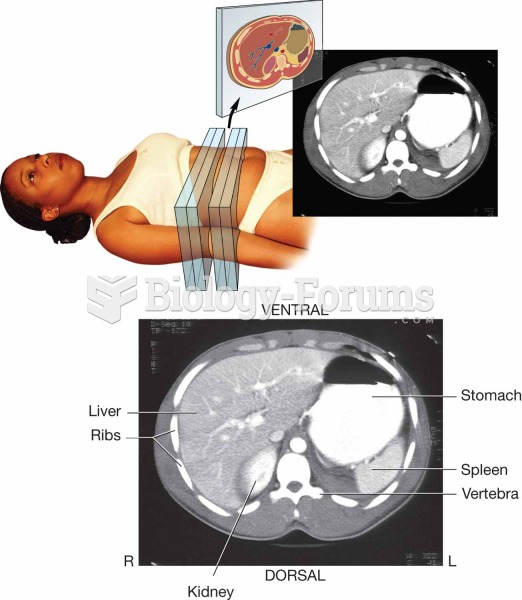|
|
|
To maintain good kidney function, you should drink at least 3 quarts of water daily. Water dilutes urine and helps prevent concentrations of salts and minerals that can lead to kidney stone formation. Chronic dehydration is a major contributor to the development of kidney stones.
Famous people who died from poisoning or drug overdose include, Adolf Hitler, Socrates, Juan Ponce de Leon, Marilyn Monroe, Judy Garland, and John Belushi.
Disorders that may affect pharmacodynamics include genetic mutations, malnutrition, thyrotoxicosis, myasthenia gravis, Parkinson's disease, and certain forms of insulin-resistant diabetes mellitus.
In the United States, there is a birth every 8 seconds, according to the U.S. Census Bureau's Population Clock.
As many as 28% of hospitalized patients requiring mechanical ventilators to help them breathe (for more than 48 hours) will develop ventilator-associated pneumonia. Current therapy involves intravenous antibiotics, but new antibiotics that can be inhaled (and more directly treat the infection) are being developed.
 The planes of the body. The sagittal plane is vertical from front to back, the frontal plane is vert
The planes of the body. The sagittal plane is vertical from front to back, the frontal plane is vert
 Types of paralysis: (A) Quadriplegia is complete or partial paralysis of the upper extremities and c
Types of paralysis: (A) Quadriplegia is complete or partial paralysis of the upper extremities and c





